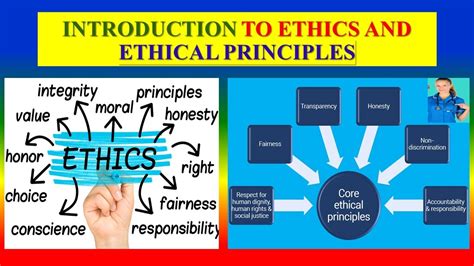The realm of healthcare is intricate and multifaceted, encompassing a wide range of ethical considerations that impact patients, healthcare providers, and the broader society. Ethical vocabulary in healthcare serves as the foundation for navigating these complexities, ensuring that discussions, decisions, and practices are grounded in principles of respect, dignity, and the well-being of individuals. Understanding and applying ethical terminology is crucial for healthcare professionals, policymakers, and patients alike, as it facilitates effective communication, informed decision-making, and the provision of care that is respectful, patient-centered, and ethically sound.
At the heart of ethical vocabulary in healthcare are concepts such as autonomy, beneficence, non-maleficence, and justice. Autonomy refers to the patient's right to make informed decisions about their own healthcare, free from coercion or undue influence. Beneficence involves the provision of care that benefits the patient, while non-maleficence is the principle of doing no harm. Justice pertains to the fair distribution of healthcare resources and services, ensuring that all individuals have equitable access to necessary care. These principles guide healthcare professionals in their daily practice, influencing everything from treatment plans and patient interactions to policy development and research ethics.
Key Points
- Understanding ethical vocabulary is essential for effective communication and decision-making in healthcare.
- Core ethical principles in healthcare include autonomy, beneficence, non-maleficence, and justice.
- Ethical considerations impact all aspects of healthcare, from patient care to policy and research.
- Applying ethical principles requires a nuanced understanding of individual patient needs and societal factors.
- Continuing education and professional development are critical for healthcare professionals to stay updated on ethical issues and best practices.
Foundations of Ethical Vocabulary in Healthcare

The foundation of ethical vocabulary in healthcare is built upon a deep understanding of ethical theories and principles. These theories, including deontology, consequentialism, and virtue ethics, provide frameworks for analyzing ethical dilemmas and making informed decisions. Deontology, for example, emphasizes the importance of rules and duties, while consequentialism focuses on the outcomes of actions. Virtue ethics, on the other hand, highlights the character and virtues of the healthcare provider. By grasping these theoretical underpinnings, healthcare professionals can better navigate the complex ethical landscape of their practice.
Applying Ethical Principles in Clinical Practice
In clinical practice, ethical principles are applied in a variety of contexts, from informed consent and confidentiality to end-of-life care and resource allocation. Informed consent, for instance, is a process where patients are fully informed about their treatment options, including the risks, benefits, and alternatives, and then make a voluntary decision about whether to proceed. This process respects patient autonomy and ensures that care is beneficent. Confidentiality, another key principle, protects patients’ personal and medical information, safeguarding their privacy and trust in the healthcare system.
| Ethical Principle | Application in Healthcare |
|---|---|
| Autonomy | Informed consent, patient decision-making |
| Beneficence | Provision of beneficial care, prevention of harm |
| Non-maleficence | Avoidance of harmful treatments or actions |
| Justice | Fair distribution of healthcare resources, equitable access to care |

Evolving Ethical Issues in Healthcare

The healthcare landscape is constantly evolving, with advances in technology, changes in societal values, and shifts in healthcare policies presenting new ethical challenges. Issues such as genetic privacy, the use of artificial intelligence in healthcare, and the allocation of scarce resources during public health emergencies require careful ethical consideration. Moreover, the increasing focus on personalized medicine and precision health raises questions about equity, access, and the potential for exacerbating health disparities. Addressing these evolving ethical issues demands a proactive and collaborative approach among healthcare professionals, policymakers, and the community at large.
Addressing Health Disparities and Promoting Equity
Health disparities and inequities are significant ethical concerns in healthcare, reflecting systemic issues such as discrimination, lack of access to care, and socioeconomic inequalities. Cultural competency and health literacy are essential for providing care that is sensitive to the diverse needs of patients, while community-based initiatives and policy reforms can help address the root causes of health disparities. By prioritizing equity and working to eliminate disparities, healthcare systems can better serve all individuals, regardless of their background or socioeconomic status.
In conclusion, ethical vocabulary is fundamental to the practice of healthcare, guiding decisions, actions, and policies that impact patients and communities. As healthcare continues to evolve, the importance of ethical considerations will only grow, necessitating a deep understanding of ethical principles, theories, and their application in clinical practice and policy development. By embracing ethical practice and promoting a culture of respect, dignity, and equity, healthcare professionals can ensure that care is not only effective but also compassionate and just.
What is the importance of autonomy in healthcare ethics?
+Autonomy is crucial in healthcare ethics as it respects the patient’s right to make informed decisions about their own care, ensuring that their values and preferences are honored.
How does beneficence apply to healthcare practice?
+Beneficence in healthcare involves providing care that benefits the patient, which includes not only treating illnesses but also preventing harm and promoting the patient’s well-being.
What role does justice play in healthcare ethics?
+Justice in healthcare ethics is about ensuring fairness and equity in the distribution of healthcare resources and services, making sure that all individuals have access to the care they need, regardless of their background or socioeconomic status.



